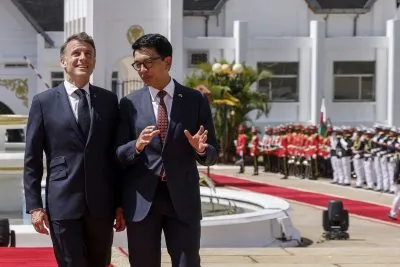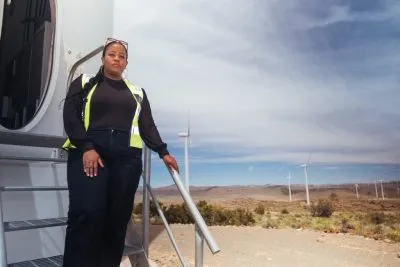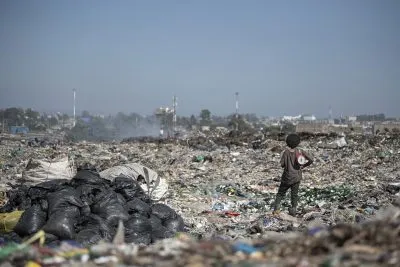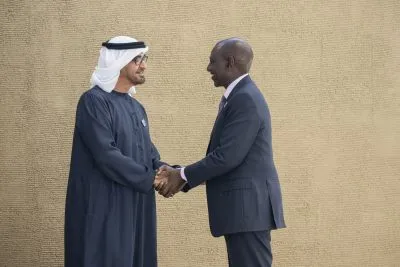Getting it right
Two thirds of us – an estimated 5bn people – will be living in cities by 2030. The UN’s Ban Ki-moon says, “In a world where already over half the population lives in urban areas, the human future is largely an urban future. We must get urbanisation right. Liveable cities are crucial not only for city-dwellers but also for providing solutions to some of the key aspects of sustainable development.”
Some African city projects so far have not done so, and may remain “urban fantasies”, cautions Professor Vanessa Watson of the University of Cape Town.
Rapid urbanisation and “grandiose” new city plans such as those of Hope City outside Accra in Ghana, Kigali in Rwanda and Addis Abbaba in Ethiopia; and satellite cities such as Tatu, outside Nairobi in Kenya, and Kgamboni, outside Dar es Salaam in Tanzania, must be designed to meet the needs of the people, she writes, in her paper for the International Institute for Environment and Development. Cities must be able to function in the local environment, otherwise they may divert scarce and much-needed resources, she warns
It cannot be denied that improving cities’ infrastructure needs investment. The World Bank estimates over $700bn a year is needed to finance urban infrastructure in low- and middle-income countries. As cities grow, municipal governments need to broaden and deepen sources of financing, and move beyond traditional public funding to access much larger private pools of savings, particularly in domestic capital markets.
For most cities, the Bank says, achieving this access at scale and at reasonable cost will require sustained and disciplined attention to policies and practices underpinning their creditworthiness.
Currently, only a small percentage of the 500 largest cities in developing countries are deemed creditworthy – about 4% in international financial markets and 20% in local markets.
However, a World Bank initiative is helping African cities tackle these financing challenges and catalyse investments in sustainable development. If just 100 of the world’s largest cities embarked on a low-carbon development path, global greenhouse gas emissions could decrease by 10% a year. Last year, the Bank launched the Low-Carbon, Livable Cities Initiative to help developing world cities plan and access financing for low-carbon and resilient development. In one year, its Creditworthiness Academy has reached 66 cities in 22 countries, helping improve financial management and increase access to capital.
“This initiative has the potential to leverage private investment that will finance the infrastructure necessary to help cities meet the demands of citizens for basic services, and build resilience to the effects of the changing climate,” said James Close, programme manager of the World Bank-supported Public-Private Infrastructure Advisory Facility (PPIAF).
Every dollar invested in the creditworthiness of a developing country city through the Programme has the potential to leverage more than $100 in private sector financing for low-carbon and climate-resilient infrastructure.
But as well as initiatives such as this, citizens may have their own creative solutions and can promote new ideas to bring about the cities they need and want. World Cities Day focuses on empowering people to do just this.
As part of World Cities Day, UN-Habitat initiated a ground-breaking global challenge, in conjunction with the UK’s Guardian newspaper: city dwellers around the world contributed ideas for transforming their own cities.
The contest was narrowed down to 36 finalists, from Tallinn (Estonia) to Calgary (Canada) to Bhubanesewar (India), who each presented the case for their city live online. The only rule was that the ideas had to be implemented, or be about to be.
“I have been deeply impressed by the ideas that have poured in from around the world,” Dr Clos commented. “All ideas – big or small – can have an impact. By continuing to share ideas such as these we can start to unlock the potential of urbanisation to improve life for people around the world.” Three African cities were among the finalists.
The future of our planet depends on cities. In short, we need to develop a new urban agenda and World Cities Day is a unique starting point for a global transformation in sustainable living.
Want to continue reading? Subscribe today.
You've read all your free articles for this month! Subscribe now to enjoy full access to our content.
Digital Monthly
£8.00 / month
Receive full unlimited access to our articles, opinions, podcasts and more.
Digital Yearly
£70.00 / year
Our best value offer - save £26 and gain access to all of our digital content for an entire year!

 Sign in with Google
Sign in with Google 





